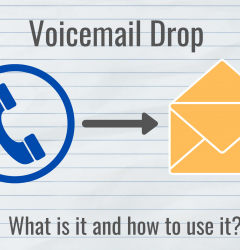
Sales plans shouldn’t be a hassle, they should be helpful! Make your sales planning process simple and effective with these guiding questions and our sales plan template.
What Is a Sales Plan?
A sales plan will clearly define the company’s goals, target audience, and the roles and strategies used to achieve the goals. Its purpose is to guide every aspect of the business’s big-picture sales strategy.
An effective sales plan should define and communicate the company’s goals and objectives, clearly define the direction, determine roles and responsibilities and make sure that the team knows everyone’s roles, and monitor the team’s progress according to your goals.
Sales Plan Vs. Sales Strategy: What’s the Difference?
The sales plan is essentially a specific continuation of the sales strategy. While the sales strategy is more about the general approach, the sales plan is more of a detailed plan for action. Also, the sales plan is done for a short period of time, the strategy is more long-term.
Sales Strategy = Overall Business Plan
Sales Plan = Detailed Segment of overall Business Plan
Almost everything that we cover here, we’ve presented as a part of the bigger picture in our Sales Strategy Guide. So make sure to check it out to understand why you actually need a sales plan.
Business Sales Plan Vs. 30-60-90 Day Sales Plan
You have probably heard of the 30-60-90 day plan being used in an interview or as a process used to ease a new employee into the company. While that is one way to use it, it can also be used as a business plan.
When using this strategy the company would need to create a manageable goal to accomplish in the 3 month period. Within the 30, 60, and 90 days there should be measurements of smaller goals to help determine the success of reaching the bigger goal at the end of the three months. This method of business plan is so effective because it creates momentum.
The sales strategy gives the big picture goal and although that is good to have, it doesn’t get the momentum going like the 30-60-90 day plan. If there aren’t smaller goals in shorter periods of time, employees can lose focus of the overall goal.
Including the 30-60-90 Day Sales Plan in Your Company’s Interview and Onboarding Process
As said before, this type of plan can be used in interviews. By introducing 30-60-90 day sales plan template examples, the interviewee gets a better understanding of what the company’s goals are and what will be expected of them, if they receive the job. If the interviewee is a good fit then the 30-60-90 day plan will act as their training and provide a gradual integration into the company.
How to Write a Sales Plan: Step by Step
The more detailed and specific, the better in this case! Go into the who, why, what, when, and how of each of the topics below to get the most effective sales plan.
Team Structure and Roles
When documenting the team structure and roles ask yourself these questions and then answer them in the sales plan:
- Does everyone have a defined role and defined tasks?
- Does everyone have someone to report to, and if so, do they know who that person(s) is/are?
- How does the chain of command look?
- Are there needs for new roles or vise versa are there some roles that are no longer needed? If so, we have a great resource on what signs indicate that you should fire a salesperson.
These are just a few questions to get the ball rolling. After you define and document the team structures and roles, have a meeting to clarify this information and ensure that everyone is aware of their roles and everyone else’s roles.
Define Your Specific Buyer Personas
If you have multiple products or services, then you will also have multiple buyer personas. Therefore, do not give vague buyer personas for your products, be as specific as you can to ensure you are targeting the right individuals with the right methods.
Keep in mind that the buyer persona will change just as often as the industry does…in other words, all the time. There should be a consistency to how frequently you update the buyer persona(s) for your product(s).
Resources for Tools, Software & Training
The sales plan should include a detailed description of the resources used, who uses them, how they are used, etc. This includes tools for training, selling, tracking, documenting, sales management tools, and anything else.
Training should also be used for yourself. As the manager it’s easy to focus on everyone else’s professional development and neglect your own. If that is the case for you, refer to our blog ‘How to Be a Good Sales Manager For Your Team: 10 Sales Manager Skills to Obtain’.
Pricing and Promotions For the Time Period
Document the pricing and promotion plans you are going to use to achieve the goal. This could be a 20% discount or free shipping in the month of February. Anything the company is using to increase sales will need to be documented into the plan.
Each product or service will likely need its own unique pricing and promotion to increase its sales with its target market. For instance:
- Product A: Buy one get one half off for the month of June
- Product B: Increasing the price from $120 to $130
- Product C: 20% off using the code MYSALE
The marketing team will be able to give the best insight into the pricing and promotion of the sales plan, so it’s best to work closely with them to document this portion of the plan.
Define Concrete Goals and Deadlines
Not all goals need to be based on revenue. Although some of the goals should be based on revenue, others should be based on volume. For instance, you might make it a goal for every salesperson to sell 120 products within the month. Another example of a volume based goal is aiming to retain 50 new customers within an achievable time period.
How will you measure your goals success? If you aren’t sure, allow us to show you 9 sales calling metrics you should be tracking to measure your success.
Write Action Plans For Your Goals
Write out your company’s goals and give practical steps that can be done to help complete the goal. Make them specific so you can check the steps off your list when they are completed. For instance:
- Goal: Improve Better Business Bureau Score
- Identify top 5 competitors with higher scores than the company and research why they have higher scores
- Set up an executive meeting with a local BBB representative to discuss what the company’s goal is.
- Identify teams to come up with solutions and offer a raise to the team who finds the best solutions.
Sales Plan Template: Free Google Sheets Sample
Here is what you’ve been waiting for! The sales plan template! It doesn’t get much more simple than that. This template will help your company document the sales plan quickly and effectively, so you can focus on implementing the plan!
Now that you know how to write a sales plan, learn how to build useful sales call reports and use our free template to improve a critical area of your sales plan.
Works Cited
Hart, M., 2021. How to Create a Sales Plan: Template + Examples. [online] Blog.hubspot.com. Available at: <https://blog.hubspot.com/sales/ultimate-guide-creating-sales-plan> [Accessed 24 February 2021].
Indeed.com. 2021. [online] Available at: <https://www.indeed.com/career-advice/starting-new-job/30-60-90-day-plan> [Accessed 23 February 2021].
Montgomery, J., 2021. Sales Strategy: How to Improve Calls, Leads, and Deals | EVS7. [online] EVS7. Available at: <https://www.evs7.com/sales/sales-strategy-how-to-improve-calls-leads-and-deals-examples> [Accessed 24 February 2021].


